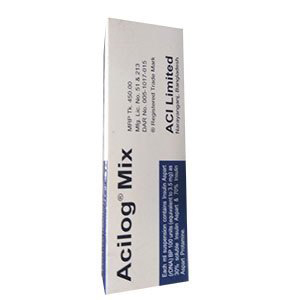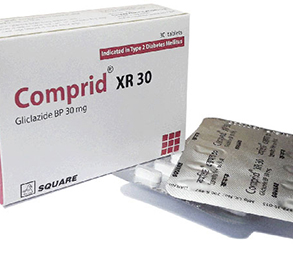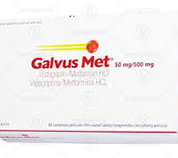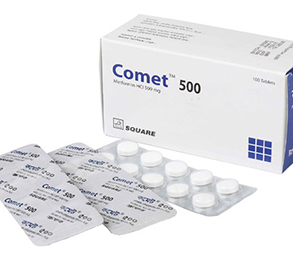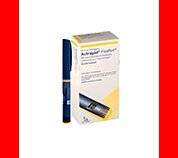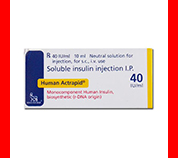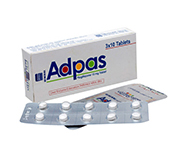Acilog Mix Injection 30%+70% 1 Pc
Alternative products
Biphasic Insulin Aspart [rDNA]
Composition
Each ml suspension contains Insulin Aspart (rDNA) 100 units (equivalent to 3.5 mg) as 30% soluble Insulin Aspart and 70% Insulin Aspart Protamine suspension
Indications
Biphasic Insulin Aspart (rDNA) is indicated to improve glycemic control in adults and children with type 1 diabetes mellitus and in adults with type 2 diabetes mellitus.
Pharmacology
30% Insulin Aspart and 70% Insulin Aspart Protamine (rDNA) is a human insulin analog suspension containing 30 % soluble Insulin Aspart and 70% Insulin Aspart Protamine crystals. This is a blood glucose lowering agent with an earlier onset and an intermediate duration of action. Insulin Aspart is homologous with regular human insulin with the exception of a single substitution of the proline by aspartic acid in position B28, and is produced by recombinant DNA technology utilizing Saccharomyces cerevisiae (baker’s yeast).
Primary function of insulin, including Insulin Aspart, is regulation of glucose metabolism. Insulin and its analogs lower blood glucose by stimulating peripheral glucose uptake, primarily by skeletal muscle and fat, and by inhibiting hepatic glucose production. Insulin inhibits lipolysis and proteolysis, and enhances protein synthesis.
Dosage
The dosage of insulin aspart must be individualized.
Subcutaneous injection: insulin aspart should generally be given immediately (within 5-10 minutes) prior to the start of a meal.
Use in pumps: Change the insulin aspart in the reservoir at least every 6 days, change the infusion set, and the infusion set insertion site at least every 3 days. insulin aspart should not be mixed with other insulins or with a diluent when it is used in the pump.
Intravenous use: insulin aspart should be used at concentrations from 0.05 U/mL to 1.0 U/mL insulin aspart in infusion systems using polypropylene infusion bags. insulin aspart has been shown to be stable in infusion fluids such as 0.9% sodiumchloride.
* চিকিৎসকের পরামর্শ মোতাবেক ঔষধ সেবন করুন'
Administration
Before going for administration of Biphasic Insulin Aspart (rDNA) please follow the below mentioned check list:
- Insulin syringe of the right size (100 units/ml)
- Prescribed type of insulin injection
- Check the expiry date on Biphasic Insulin Aspart (rDNA) vial
- Ensure that the flip off cap on the Biphasic Insulin Aspart (rDNA) vial is intact
After that follow the below mentioned instructions:
- Wash your hands carefully. Shake or roll the vial 10 times to completely Mix the insulin.
- lnspect the vial. Vial should appear white and cloudy after mixing.
- When using a new vial, flip off the plastic protective cap, but do not remove the stopper. The tip of the vial should be wiped with an alcohol swab.
- Draw air into the syringe equal to your insulin dose.
- Insert needle into vial through rubber top & push plunger to empty the air into the vial.
- Turn the bottle and syringe upside down. Hold the bottle and syringe firmly in one hand and shake gently. Make sure that the tip of the needle is in the liquid; withdraw the correct dose of insulin into the syringe.
- Before removing the needle from the vial, check the insulin syringe for air bubbles, which reduces the amount of insulin in it, if bubbles are present, hold the insulin straight up and tap its side until the bubbles float to the top. Push them out with the plunger and withdraw the correct dose again.
- Lightly pinch up the skin, holding the syringe like a pencil.
- Insert the needle into the skin & push the plunger slowly. Make sure that the needle is all the way in.
- Wait for 5 seconds & pull out the syringe. Do not rub the area.
* চিকিৎসকের পরামর্শ মোতাবেক ঔষধ সেবন করুন'
Interaction
A number of substances affect glucose metabolism and may require dose adjustment and particularly close monitoring.
The following are examples that may increase the blood glucose lowering effect and susceptibility to hypoglycemia: oral anti-diabetic products, pramlintide and angiotensin converting enzyme (ACE) inhibitors, disopyramide, fibrates, fluoxetine, monoamine oxidase inhibitors, propoxyphene, salicylates and sulfonamide antibiotics.
The following substances are examples that may reduce the blood glucose lowering effect: corticosteroids, niacin, danazol, diuretics, sympathomimetic agents, isoniazid, phenothiazine derivatives, somatropin, estrogens, progestogens, atypical antipsychotics and danazol. Beta-blockers, clonidine, lithium salts, and alcohol may either potentiate or weaken the blood-glucose-lowering effect of insulin. Pentamidine may cause hypoglycemia, which may sometimes be followed by hyperglycemia.
Contraindications
Biphasic Insulin Aspart (rDNA) is contraindicated
- During episodes of hypoglycemia
- In patients with hypersensitivity to Insulin Aspart or any of its excipients.
Side Effects
Side effects of Insulin Aspart are hypoglycemia, lipodystrophy, weight gain, peripheral edema.
Pregnancy & Lactation
Pregnancy category B. Careful monitoring of glucose control is essential in such patients because insulin requirements change during different stages of pregnancy. Therefore female patients should be advised to tell their physician if they intend to become or if they become pregnant while taking insulin aspart
Lactation: It is unknown whether Insulin Aspart is excreted in human milk as occurs with human insulin. There are no adequate and well-controlled studies of the use of insulin aspart in lactating women. Lactating Women may require adjustments of their insulin doses.
Precautions & Warnings
Dose adjustment and monitoring: Blood glucose should be monitored in all patients treated with insulin. Insulin regimens should be modified cautiously and only under medical supervision.
Renal or hepatic impairment: Reduction in the Insulin Aspart dose may require in these cases.
Use in Special Populations
Pediatric: Has not been studied in children with type 2 diabetes. Has not been studied in children with type 1 diabetes <2 years of age
Overdose Effects
Insulin Aspart overdose may result in hypoglycemia. Mild episodes of hypoglycemia can usually be treated with oral carbohydrates. Severe hypoglycemia may be treated with parenteral glucose or injections of glucagon. Adjustments in drug dosage, meal patterns, or exercise may be needed.
Therapeutic Class
Combination Insulin
Storage Conditions
Store at 2°C to 8°C in a refrigerator. Do not freeze. In case of insulin for recent use need not be refrigerated, try to keep it in a cool place and keep away from heat and light. The insulin in use can be kept under the room temperature for a month.
- Type Injection
- Tag
- Morbi leo risus
- Porta ac consectetur ac
- Vestibulum at eros
